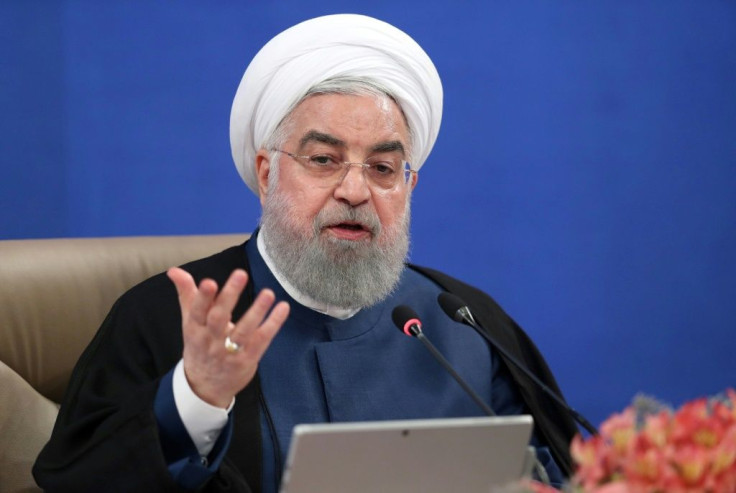Iran's Rouhani Hopeful US Arms Embargo Push Will Fail
Iran's President Hassan Rouhani expressed "great hopes" Wednesday that a US bid to extend an arms embargo on his country will fail, warning of consequences if the UN Security Council backs it.
Rouhani's remarks came after Iran's ambassador to the United Nations said the US would have to redraft its proposed resolution on the issue after being "rebuffed" by Security Council members.
"We have great hopes that America will fail," Rouhani told a televised meeting of his cabinet.
The ban on selling weapons to Iran is set to be progressively eased from October under the terms of Resolution 2231, which blessed the Iran nuclear deal that world powers agreed in July 2015.
But a UN embargo on materials and technology that Iran could use for its ballistic missile programme is to remain in place until 2023.
The European Union has said it will continue to enforce its own embargo against Iran after the lifting of the first UN restrictions.
Under the accord officially known as the Joint Comprehensive Plan of Action, Iran committed to limiting its nuclear programme in exchange for sanctions relief.
The JCPOA has been on life-support since the US under President Donald Trump withdrew from it and reimposed unilateral sanctions in 2018.
Iran has since taken small but escalatory steps away from compliance with the agreement as it presses for the sanctions relief it was promised.
"We have great hopes that America will realise its failure and see its isolation," the Iranian president said.
"But our stance in any case is clear. If such a resolution comes to pass... it means a blatant violation of the JCPOA," he added, warning the "consequences will rest with the perpetrators of this act".
Iran's envoy to the UN, Majid Takht Ravanchi, said on Wednesday that the US "was forced to retreat" from its draft resolution after being "rebuffed by UNSC members" and had to propose a fresh version.

"The new draft is similar -- in its NATURE and GOAL -- to the previous. Confident that the Council will -- again -- reject this move."
Foreign Minister Mohammad Javad Zarif said earlier the new draft was a "five-page resolution reduced to five sentences", and added that by presenting it as new, the US was disrespecting Security Council members.
The original US text, seen by AFP in New York, effectively called for an indefinite extension of the arms embargo on Iran and used hawkish rhetoric.
A new US-drafted resolution also seen by AFP was slimmed down from that one, but it still calls for an indefinite extension.
With most European countries in the 15-member Council expected to abstain, the new text is unlikely to get the nine votes it needs to pass.
If it does, China and Russia intend to veto the resolution.
Richard Gowan, a New York-based UN expert at the International Crisis Group, said the US had "mishandled the diplomatic choreography over this resolution".
"They wanted to push their hardline draft and then make a show of compromising on a shorter text, which they hoped Estonia or Tunisia would introduce," he said.
"But the Estonians and Tunisians, like most other Council members, seem to have decided that they want as little to do with this unholy mess as possible.
"After talks on Monday, both turned down the opportunity to table the compromise text," he told AFP in New York.
"So now the US has had to do that itself. But the goal, which is to move towards snapback, remains the same."
European allies of the US -- Britain, Germany and France, who along with Russia and China, are parties to the JCPOA -- have voiced support for extending the conventional arms embargo but their priority is to preserve the nuclear deal.
Washington has threatened to use a contested argument that it remains a "participant" in the JCPOA -- despite its withdrawal -- and if UN sanctions are not extended, it can force their return if it sees Iran as being in violation of the accord's terms.
© Copyright AFP 2024. All rights reserved.





















